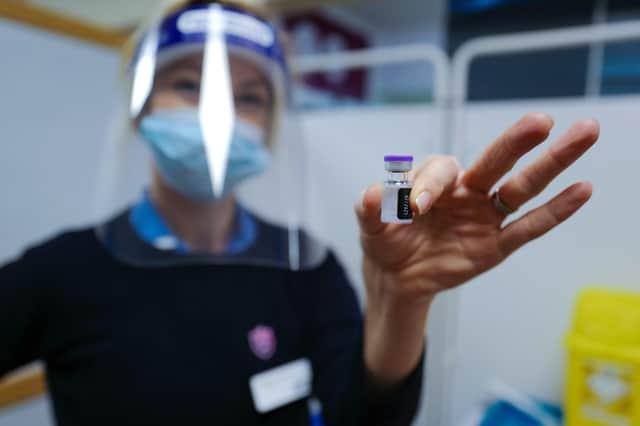Covid vaccine can help us all have a more 'normal' holiday season – Dr Gwenetta Curry


New variants were surging in Europe, and it was clear that the wave of infections signalled the cancellation of holiday travel plans and office parties.
The discovery of effective vaccines and medications to reduce hospitalisations increased hope that this year things would be different and there would be a return to “normal” group gatherings and holiday travel.
Advertisement
Hide AdAdvertisement
Hide AdOn November 16, there were 2,771 new cases of Covid-19 reported in Scotland and a further 17 deaths. These numbers are greatly improved from the peak experienced in September when daily cases were over 7,000 but going into cold-and-flu season with over 2,000 daily cases is still concerning.
There has always been increased pressure on the NHS during the winter months but Covid brings even more. While there have been no recent changes to the restrictions, the government is considering expanding the coronavirus passport scheme.
Currently everyone has to show proof of being fully vaccinated to enter nightclubs, adult entertainment venues and indoor events with more than 500 people, unseated outdoor events with more than 4,000, and any event with more than 10,000. But the passport scheme could be extended to pubs, cinemas, theatres, and other hospitality venues.
Those who are most vulnerable to severe reactions to Covid-19 are being offered a booster shot as the data shows that vaccinations are waning in some groups.
According to the Joint Committee on Vaccination and Immunisation (JVCI), the booster doses are offered to: those living in residential care homes for older adults, frontline health and social care workers, all adults aged 40 or over, adults aged 16 to 39 with underlying conditions, adult carers over 16, and household contacts of immuno-suppressed individuals. It is unclear if everyone will have to get a booster shot to be considered fully vaccinated soon.
Although there has been major progress in vaccine distribution in the UK, children between the ages of five and 11 remain unprotected. After the first week of approval of the Pfizer vaccine in the US, over 900,000 children in that age group were vaccinated. Israel has just announced that they will also start vaccinating this age group within the coming days.
While the risk of children dying from Covid-19 is significantly lower than older adults, the risk of Long Covid remains important. Parents in the UK should at least be given the option to protect their children from the virus in the same way as they protect their children from the flu.
In order to not have a repeat of last year’s restrictions, we will need to continue to keep a close watch on the ever-changing landscape of Covid-19, not only in the UK but across the globe.
Advertisement
Hide AdAdvertisement
Hide AdVarious countries across Europe have already begun to bring back some measures to stop the spread. For example, Germany and Slovakia have plans to introduce tighter restrictions on people who are not vaccinated.
Vaccinations are only one measure, and we must remain hyper-vigilant about wearing masks and avoiding crowded spaces to be effective in reducing the spread. These steps will help safeguard already overwhelmed NHS staff, as well as allow for some “normal” holiday activities.
Dr Gwenetta Curry is an Edinburgh University lecturer on race, ethnicity and health
A message from the Editor:
Thank you for reading this article. We're more reliant on your support than ever as the shift in consumer habits brought about by coronavirus impacts our advertisers.
If you haven't already, please consider supporting our trusted, fact-checked journalism by taking out a digital subscription.
Comments
Want to join the conversation? Please or to comment on this article.
